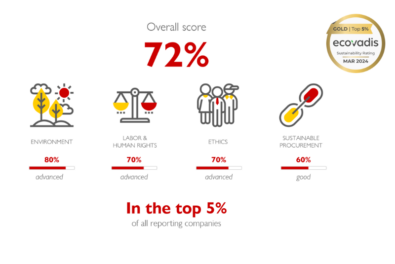In today’s data-driven world, the importance of secure file sharing cannot be overstated. Businesses must navigate a complex landscape of digital threats while ensuring seamless collaboration and data integrity.
Secure share, document share, send files securely, and secure document sharing are not just buzzwords; they represent fundamental aspects of modern information exchange.
In this blog, we are going to cover three main points, including the realm of secure file sharing, uncovering best practices and insights to fortify your data defences.
Written by Michelle Kermath

Michelle is Head of Consultancy & Technical – ECM at Crown Records Management with years of experience in the field of Enterprise Content Management (ECM).
What is a secure file sharing system?
A secure file sharing system integrates multiple layers of security to safeguard sensitive information.
Beyond encryption and access controls, auditing and logging functionalities provide visibility into file access and modifications, enabling organisations to track user activity and maintain compliance with regulatory standards.
Seamless integration with identity providers streamlines user authentication processes, enhancing security while simplifying access management.
In today’s digital landscape, businesses must prioritise secure share practices to protect against data breaches and cyber threats. According to a report by IBM, the global average cost of a data breach in 2023 was USD 4.45 million, a 15% increase over 3 years.
Following on from this, according to a 2022 report from Entrust, ‘72% of organisations have suffered a data breach, half of them within the last year.’ By implementing secure file sharing systems, organisations can mitigate these risks and safeguard their valuable assets.
How can I share files securely?
Secure file sharing begins with implementing robust encryption protocols and access controls. Whether leveraging cloud-based platforms, encrypted email services, or secure file transfer protocols (SFTP), encryption ensures that data remains protected during transit and at rest.
Establishing granular access controls allows organisations to define and enforce access privileges based on user roles and permissions, minimising the risk of unauthorised data exposure.
When considering how to securely share documents, it’s crucial to choose platforms that offer end-to-end encryption and secure document sharing capabilities. By utilising secure file sharing systems, businesses can confidently exchange sensitive information without compromising data integrity.
How do you secure large file sharing?
Securing large file sharing requires a combination of efficient protocols and scalable solutions.
Compression and encryption techniques optimise the transfer of large files, ensuring both efficiency and security. Bandwidth management capabilities prioritise large file transfers, while segmented uploading reduces the risk of data corruption and enhances transfer reliability, even in challenging network environments.
Effective large file sharing security involves employing encryption methods and robust authentication mechanisms. By implementing secure file sharing practices, businesses can confidently exchange large volumes of data while maintaining data integrity and confidentiality.
In conclusion, secure file sharing is not just a feature; it’s a necessity in today’s digital landscape.
By adopting best practices and leveraging advanced technologies, businesses can mitigate risks and safeguard sensitive information while fostering collaboration and innovation.
Crown Records Management UK offers comprehensive Cloud Services tailored to address the diverse needs of businesses, providing secure document sharing and storage solutions that prioritise data security and integrity. With Crown, businesses can embark on their digital transformation journey with confidence, knowing that their data is protected every step of the way.
If you want to find out more about Crown’s Cloud Services, click here, or for more information, reach out to our team of friendly experts today.








